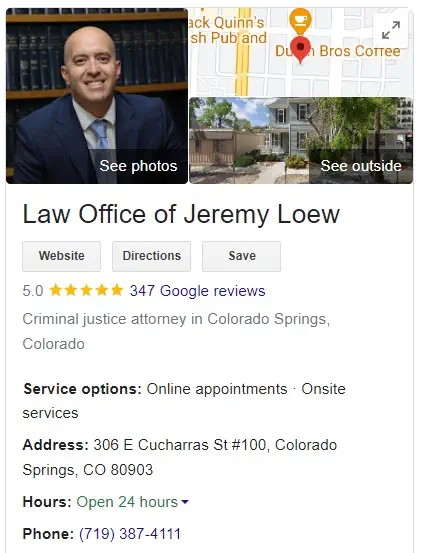Sex Offender Deregistration In Colorado
Sex Offender Deregistration – A Complicated Process
Sex offender deregistration, also known as removal from the sex offender registry, is a complicated legal process that can allow those convicted of certain sex crimes to seek relief from the ongoing requirement to register as sex offenders.
In Colorado, this process is governed by strict legal guidelines, and success depends on meeting specific criteria. Understanding the complexities of deregistration is critical for individuals in Colorado Springs to navigate this complex legal matter.
Overview of Sex Offender Registration in Colorado
The sex offender registry is a tool used to monitor individuals convicted of sexual offenses. Under Colorado law, individuals convicted of certain sex-related crimes are required to register with local law enforcement. This registration includes providing personal information, which is then made available to the public or specific agencies, depending on the offense.
Registration requirements vary in duration, based on the severity of the offense. They may be:
- 5-Year Registration Period: For less severe offenses, typically misdemeanors or certain deferred judgment cases.
- 10-Year Registration Period: For moderate offenses, often categorized as felonies.
- Lifetime Registration: For severe offenses, including aggravated felonies and crimes involving violence or minors.
- Failure to comply with registration requirements can result in significant legal consequences, including criminal charges.
Eligibility for Sex Offender Deregistration in Colorado
Not all individuals on the registry are eligible for deregistration. Colorado law outlines specific criteria based on the nature of the offense, the time elapsed since registration, and the individual’s compliance with registration requirements. Key factors include:
Time Elapsed Since Registration
For misdemeanor offenses, individuals may apply for deregistration after 5 or 10 years, depending on the offense.
For certain felonies, 10 or 20 years must have passed since the completion of the sentence.
Completion of Court-Mandated Requirements
The individual must have completed all aspects of their sentence, including probation, parole, or mandatory treatment programs.
Risk to Public Safety:
A psychological evaluation or risk assessment may be required to demonstrate that the individual no longer poses a threat to the community.
Nature of the Offense
Certain severe offenses, such as those involving children or repeated sexual violence, may render an individual ineligible for deregistration.
The Process of Seeking Deregistration
Sex offender deregistration in Colorado involves a multi-step legal process that requires careful preparation and the assistance of a knowledgeable attorney. The steps typically include:
Filing a Petition
The individual must file a petition for deregistration in the district court where the conviction occurred. The petition must include evidence of eligibility, including proof of compliance with registration and completion of the sentence.
Notifying Interested Parties
Prosecutors and other relevant parties, such as victims or law enforcement agencies, are notified of the petition. These parties may object to the request.
Court Hearing
A judge reviews the petition and considers evidence, including testimony from the individual, risk assessments, and objections from interested parties. The court determines whether deregistration aligns with public safety interests.
Judicial Decision
If the court grants the petition, the individual is no longer required to register as a sex offender. If denied, the individual may appeal or reapply after meeting additional criteria.
Challenges and Considerations
While deregistration offers relief, it is not guaranteed, and the process can be challenging. Common obstacles include:
Complex Legal Requirements
Colorado law is specific about eligibility and procedures, and even small errors in the application can result in denial.
Public and Prosecutorial Opposition
Victim advocates or prosecutors may argue against deregistration, citing community safety concerns.
Stigma and Psychological Impact
The process itself can be emotionally taxing, as it often involves revisiting the original offense and addressing societal stigma.
Importance of Experienced Legal Representation
For those seeking sex offender deregistration, working with a skilled and experienced Colorado Springs criminal defense attorney is essential.
- Your Colorado Springs criminal defense lawyer can:
- Evaluate eligibility and advise on the likelihood of success.
- Gather evidence and prepare a compelling petition.
- Represent the individual in court, counter objections, and advocate for deregistration.
- Provide ongoing support and guidance throughout the process.
Sex offender deregistration in Colorado represents an opportunity for those convicted of a sexual offense to move forward and reintegrate into society without the burdensome requirements of registration.
However, it is a legally intricate process that demands careful preparation and expert legal guidance. For those in Colorado Springs seeking deregistration, consulting a knowledgeable criminal lawyer can make all the difference in achieving a favorable outcome.



 Out of a field of approximately 1,100 attorneys surveyed,
Out of a field of approximately 1,100 attorneys surveyed,